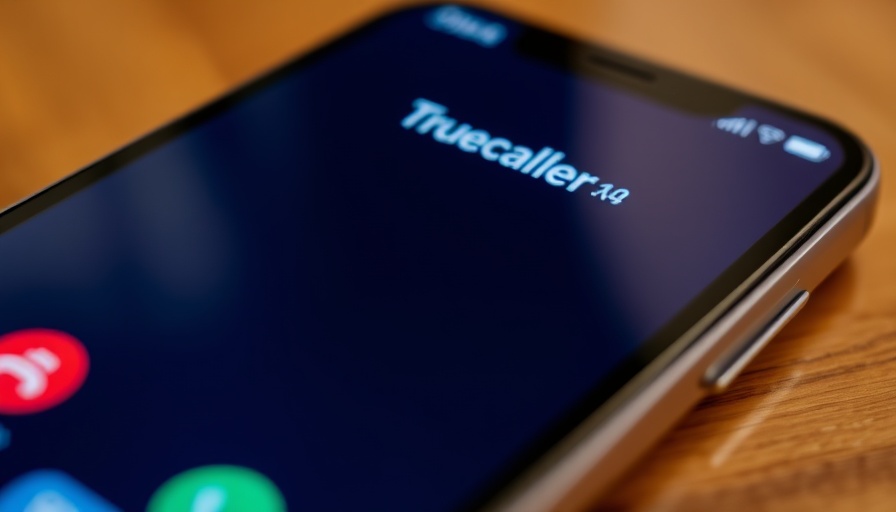
Truecaller Discontinues iPhone Call Recording: What You Need to Know
In a recent announcement, Truecaller has confirmed that it will discontinue its call-recording feature for iPhone users beginning September 30, 2025. This decision comes just over two years after the feature was rolled out on iOS, highlighting the Swedish company's shift back to its core mission of combating spam calls rather than offering supplementary functionalities like call recording.
Challenges of Call Recording on iOS
Call recording on iOS has always presented a set of challenges, especially considering Apple's strict privacy policies. Unlike Android, where third-party apps can record calls directly, iOS requires a more complicated process. Truecaller utilized a method involving a recording line that merges calls to capture audio. This workaround not only increased costs but also complicated the user experience, as noted by Nakul Kabra, Truecaller’s head of iOS.
The Shift in Focus Towards Core Features
Truecaller has been increasingly focused on enhancing its spam-blocking and Live Caller ID features. As these are the primary functions that attract users to the app, the company decided to redirect its resources and efforts toward these enhancements. In a tech landscape where user privacy is paramount, this pivot speaks to a larger trend in the industry, where software solutions must balance advanced features with compliance to privacy standards.
User Transition: What Options Are Available?
For users who have utilized the call-recording feature, Truecaller has outlined a handful of options to retain their recordings before the feature is phased out. Users can download their recordings, share them via messaging or email applications, or switch their storage to iCloud, thus ensuring they can access these files even once the service is officially discontinued.
Emerging Alternatives: Apple's Native Features
Interestingly, Truecaller's decision comes on the heels of Apple's introduction of native call recording and transcription features in its iOS 18.1 update. This native functionality allows users to record their calls without needing a separate line, presenting a more seamless experience compared to Truecaller’s previous method. Awareness of such industry shifts may guide iPhone users toward exploring these native features as alternatives for recording calls.
What This Means for Users and the Tech Landscape
The discontinuation of Truecaller’s call recording on iOS signifies an important shift in the app’s strategy and serves as a case study for tech companies navigating the challenges of consumer privacy and technological complexity. It raises questions about the sustainability of additional features in apps designed primarily for tasks like call blocking and identification.
Final Thoughts: Technology Trends to Watch
The evolving landscape of mobile technology continually influences the ways applications develop and adapt. As privacy concerns persist, users may need to reconsider their apps’ features beyond just functionality, keeping an eye on whether their favorite applications prioritize both compliance and user experience.
In conclusion, while Truecaller's decision to discontinue the iPhone call-recording feature may be disappointing for some, it reflects larger trends within the tech industry that prioritize user privacy and core functionalities while navigating complex regulatory environments.
 Add Row
Add Row  Add
Add 



Write A Comment